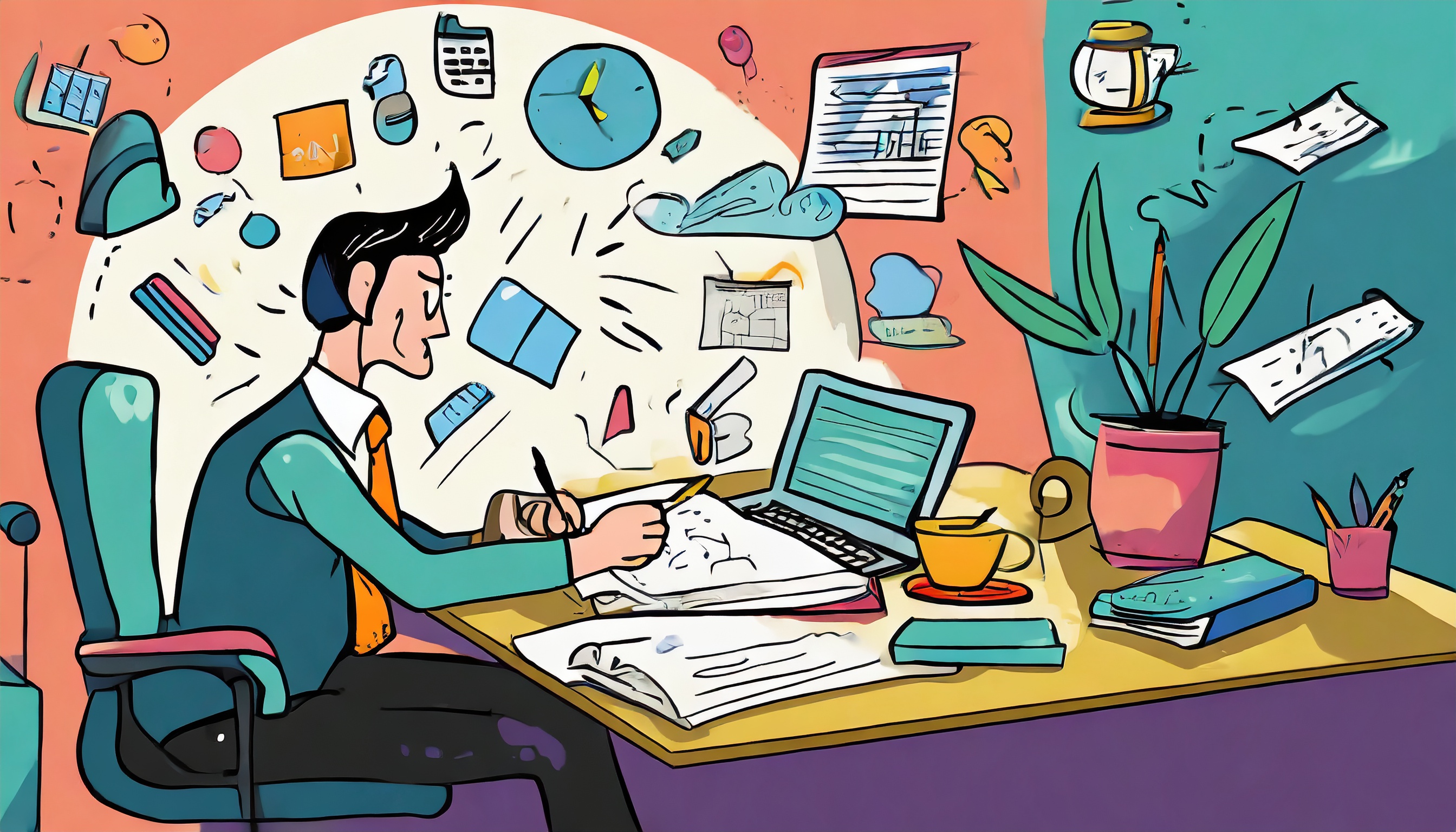Understanding the complexities of workplace stress is critical in today's fast-paced environment. It's not just about meeting deadlines or managing relationships with colleagues. It's about striking a balance that allows for both professional success and personal well-being.
Identifying the Causes of Stress at Work Workplace stress often comes from a variety of causes, from high workloads to conflicts with colleagues. In order to effectively address these stressors, it is important to identify them.
Effective Communication Strategies Open communication plays a pivotal role in stress management. Encouraging dialogue and support within your team can create a more understanding and less stressful environment.
Time Management Techniques Poor time management can be a big source of stress. Learning to prioritize your tasks and avoid procrastination can lead to a more organized and less stressful work life.
Physical Health and Stress Relief Regular physical activity and a healthy diet are key to stress management. Exercise not only improves your physical health but also your mental health, making it an essential part of stress management.
Mental and emotional well-being: Practices such as mindfulness and meditation can significantly improve mental and emotional health. Sometimes, you may need professional help to get you through tough times.
Work-life balance Maintaining a healthy balance between work and personal life is very important. Setting boundaries and ensuring adequate downtime can significantly reduce stress levels.
Organizational Strategies to Reduce Stress Companies can play an important role in reducing workplace stress by implementing supportive policies and fostering a positive culture that prioritizes mental health.
Coping with Conflict and Workplace Problems Learning to resolve conflicts amicably and handling feedback constructively can alleviate a lot of the stress caused by interpersonal problems in the workplace.
Personal Development and Growth Embracing continuous learning and being open to change can help you grow as a person and make you more resilient to the stresses of the workplace.
Technology and stress management techniques can improve efficiency, but it's important to manage their use to avoid digital overload, which can be a significant source of stress.
Building resilience Developing coping mechanisms and learning how to overcome adversity is an important aspect of building resilience to workplace stress.
The Role of Leadership in Reducing Stress Leaders play an important role in creating a stress-free environment. Their actions and policies can have a significant impact on your team's overall stress levels.
Future Trends in Workplace Wellbeing Staying on top of emerging trends in stress management and workplace well-being is critical to future-proofing new sources of stress.
Reducing stress in the workplace requires a multi-pronged approach that includes personal strategies, organizational support, and a conducive work environment. Actively embracing these strategies can lead to a healthier, more productive, and fulfilling professional life.

Frequently Asked Questions
1. What are some quick techniques to manage stress at work?
Take a break and regroup.
즉각적인 스트레스를 줄이기 위해 심호흡 운동을 한다.
어수선함으로 인한 스트레스를 최소화하기 위해 작업 공간을 정리하세요.
업무량을 효과적으로 관리하기 위해 작업의 우선순위를 정합니다.
2. 조직은 직원의 스트레스 관리를 어떻게 지원할 수 있습니까?
유연한 근무 시간 또는 원격 근무 옵션을 구현합니다.
정신 건강 자원 및 상담에 대한 접근을 제공합니다.
열린 의사소통을 장려하는 지원적인 직장 문화를 조성합니다.
스트레스 관리 기법에 대한 워크숍 또는 교육 세션을 제공합니다.
3. 근무 중 신체 운동이 스트레스 감소에 도움이 될 수 있습니까?
예, 짧은 산책이나 스트레칭 세션과 같은 신체 활동은 스트레스를 크게 줄이고 정신 집중력을 향상시킬 수 있습니다.
4. 다이어트는 직장 스트레스 관리에 어떤 역할을 하나요?
균형 잡힌 식단은 전반적인 건강과 기분을 개선하여 스트레스 관리에 도움이 될 수 있습니다. 항산화제와 오메가-3 지방산이 풍부한 식품이 특히 유익하다.
5. 스트레스를 줄이는 데 일과 삶의 균형이 얼마나 중요합니까?
건강한 일과 삶의 균형을 유지하는 것은 번아웃을 예방하고 스트레스를 줄이는 데 매우 중요합니다. 이를 통해 개인은 재충전하고 새로운 에너지와 집중력으로 직장에 복귀할 수 있습니다.
'웰빙 정보' 카테고리의 다른 글
| 바쁜 사람들을 위한 건강한 식사 계획 (1) | 2023.11.19 |
|---|---|
| 개인 건강에 대한 유전학의 역할 (0) | 2023.11.19 |
| 기후 변화가 건강에 미치는 영향 (0) | 2023.11.18 |
| 장벽 허물기 [정신 건강 낙인에 정면으로 맞서기] (0) | 2023.11.18 |
| 마음 챙김 활용 [일상 생활의 향상] (0) | 2023.11.18 |